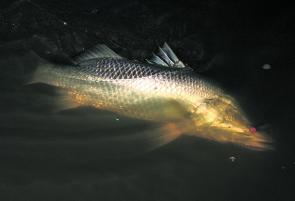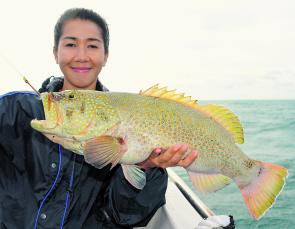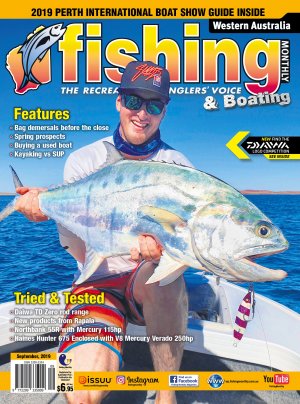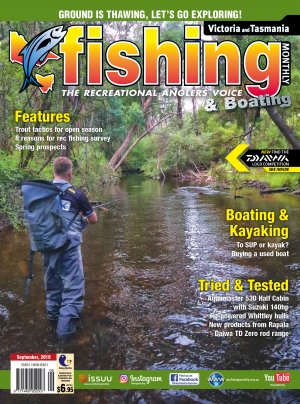The wet season has well and truly kicked into gear and the northern Peninsula area has had some fantastic rains recently. This deluge is supercharging the rivers flowing into the Gulf of Carpentaria, providing ideal conditions for newly hatched and year old barramundi to venture upstream in search of their ideal feeding habitats.
Good wet season rains not only help recruitment of fish species in the Cape's many rivers and bays, it also provides great ambush points for fish looking to get an easy meal in the run-off. Every year from March until May, thousands upon thousands of tiny rivulets, marshy overflows, swamps and drains overflow into Cape York river systems. Anyone who loves barra fishing will be targeting these areas, looking for trophy fish as they patrol the inflows in ambush.
It is common knowledge that big wet seasons lead to great fishing up in Cape York, but typically this is for estuarine species. Last year we enjoyed a fantastic mackerel season close inshore, driven primarily by a lack of any significant wet season. Other headland and reef areas may even begin to fish well as early as March, once again depending on the amount of rain and wind around.
Regardless of what type of fishing you are looking at, water temperatures will still be relatively high in March. Fishing the upstream reaches of many east coast rivers can be exceptional at this time of year as sooty grunter and jungle perch spread out through the creeks and rivers of the Cape. Mangrove jack, barra, archerfish and tarpon can also be caught far upstream in some of the crystal clear systems, which flow out of woodland, rainforest and often over sand in Cape York.
Accessibility to these areas will be particularly difficult in March and many dirt roads and tracks are closed at this time of year. Those anglers with a willingness to hike, to hop in a small dingy or even a kayak in croc-free locations from Townsville all the way north to the tip of Cape York can be well rewarded with fantastic fishing in jaw-dropping locations.
Seeing a hungry jungle perch or the dominant sooty grunter in a pool come chasing after your surface lure is brilliant fun, and releasing them back to chase insects after capture is just as rewarding. A little further downstream archerfish take on these roles. I remember clearly a morning on the Watson River when I had a small archerfish take a lure right on cue under a bush. The poor thing got beaten up by a much larger archerfish, about 45cm long, all the way back to the boat!
And the real trophy fish in the far upstream rivers of the Cape for me are barramundi and the mighty saratoga. Saratoga are brilliant looking fish and although they’re no good for eating they put on an amazing display of aerobatics, and are experts at throwing a hook with that bony mouth. Fishing lagoons and backwaters for these fish or around timber log jams where the water is brackish will yield results.
By far my favourite type of fishing involves casting surface lures in tight country, waiting for a set of gleaming orange eyes attached to a large barramundi, staring at your lifeless fizzer only feet from the bank. You can imagine the mayhem of trying to land large barra in heavily timbered spots from the bank. It's as fun as fishing gets. Losses are acceptable for the level excitement offered by landing a big one.
Fizzers, poppers and basically any surface walking lure is a great way to catch saratoga and barramundi in March. Both will have their eyes attuned to the sky, ready to take an easy meal floating or fluttering overhead. It is a great test of nerve to leave a surface lure for another one or two seconds after just missing a strike. So often if left twitching on the surface, both barra and togas will have repeated swipes at the lure. Just be sure not to rip the rod backwards and the lure out of the strike zone.
If you love greenery and rain, birdlife, flowing rivers and waterways alive with aquatic creatures, March will be one of the best months of your year. Some of the biggest barra get caught right about now. Don't be afraid to use an oversized live bait in an attempt to tempt the big ones.
Reads: 1668
A big salty comes into view. These fish have been taking surface lures with gusto.

A beautifully-coloured passionfruit trout taken from shallow reef country.




